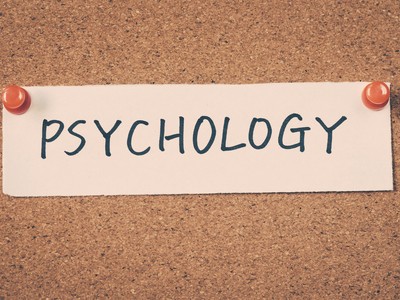
Separation Depression Psychologist Southport (07) 5539 9798

Introduction: Symptoms Of Severe Depression Psychologist Southport Near Me
Clinical anxiety is a severe psychological health condition that impacts countless people worldwide. It can have an extensive effect on a person's life, causing feelings of sadness, despondence, and a loss of interest in activities they when delighted in. While it's normal to experience periodic bouts of unhappiness or low state of mind, clinical depression is identified by persistent signs that last for weeks or months.
In this post, we will explore the symptoms of depression and talk about when it may be essential to look for expert aid. We will explore the numerous indications and signs of anxiety, along with offer guidance on how to handle and handle this devastating condition.
Exploring the Symptoms of Medical Depression
What is Scientific Depression?
Clinical depression, likewise known as significant depressive disorder (MDD), is a psychological health surfersparadisechiropractic.com.au condition that significantly affects a person's thoughts, feelings, and behavior. Unlike situational or temporary sadness, clinical depression is characterized by persistent signs that interfere with day-to-day performance and quality of life.
Recognizing the Symptoms
Depression manifests differently in each individual, but there are common signs that may indicate the existence of clinical depression. These symptoms can be categorized into emotional, cognitive, physical, and behavioral manifestations.
Emotional Symptoms
- Pervasive feelings of unhappiness or emptiness
- Loss of interest or satisfaction in activities as soon as enjoyed
- Feelings of regret or worthlessness
- Mood swings or irritability
- Increased sensitivity to criticism or rejection
Cognitive Symptoms
- Difficulty concentrating or making decisions
- Memory problems or forgetfulness
- Negative thinking patterns or pessimism
- Loss of motivation or energy
- Suicidal thoughts or fixation with death
Physical Symptoms
- Sleep disruptions (insomnia or extreme sleep)
- Changes in appetite or weight (considerable gain or loss)
- Fatigue or absence of energy
- Physical pains and pains without a clear cause
- Digestive issues or headaches
Behavioral Symptoms
Nervousness Symptoms Psychologist Southport Near Me- Social withdrawal or isolation
- Decreased efficiency at work or school
- Neglecting personal hygiene or appearance
- Substance abuse or self-destructive behaviors
- Engaging in dangerous activities or negligent behavior
When to Seek Professional Help
It is important to recognize when the signs of anxiety become severe or interfere with daily life. If you or somebody you understand is experiencing any of the following, it may be time to look for expert help:
Persistent signs lasting more than two weeks: If you have been experiencing signs of depression for a prolonged period, expert assistance can offer the required assistance and treatment options.
Suicidal ideas or self-harm: If you are having ideas of suicide or participating in self-harm, it is essential to connect for instant aid. Contact a mental health expert, helpline, or emergency services right away.
Significant impairment in everyday performance: If your depression signs are disrupting your capability to carry out everyday activities, such as going to work, keeping relationships, or looking after yourself, it is time to seek expert assistance.
Co-occurring mental health conditions: Depression frequently exists side-by-side with other mental health conditions such as anxiety conditions, bipolar affective disorder, or drug abuse. Seeking expert aid can resolve these complex concerns and provide proper treatment.
Impact on physical health: Anxiety can have harmful effects on physical health, such as increased threat for chronic illness and compromised immune system. Consulting a health care specialist can help manage both the mental and physical aspects of depression.
Previous not successful efforts at self-help: If you have attempted various self-help strategies and lifestyle changes without significant improvement in your depressive signs, it may be beneficial to speak with a mental health expert who can use evidence-based treatments.
Frequently Asked Concerns (Frequently Asked Questions)
1. How can I differentiate in between typical unhappiness and clinical depression?
While it prevails to experience periodic sadness, depression is identified by consistent symptoms that last for weeks or months. If your low mood substantially affects your every day life, it might be a sign of scientific depression.
2. Can anxiety disappear by itself without treatment?
In some cases, mild depressive signs may improve in time without intervention. However, for people with clinical depression, expert aid is often required to handle signs effectively and prevent additional deterioration.
3. Are there any natural solutions or way of life changes that can help alleviate anxiety symptoms?
While way of life modifications such as regular exercise, a balanced diet, and enough sleep can promote total wellness, they might not be sufficient to treat depression alone. It is essential to look for professional assistance for a thorough treatment plan.
4. Is medication always essential for treating depression?
Medication can be an effective treatment option for lots of individuals with depression. However, it is not constantly needed and depends on the intensity of symptoms and private scenarios. A mental health specialist can help identify the most appropriate course of treatment.
5. Can treatment assist with handling anxiety symptoms?
Therapy, such as cognitive-behavioral treatment (CBT) or social treatment (IPT), is an extensively acknowledged treatment method for managing depression signs. It can offer people with coping methods, support, and a safe space to explore Isabella Whittingham Registered Psychologist Gold Coast their emotions.
6. How long does it generally require to see improvement with treatment for depression?
The duration of enhancement differs from individual to individual and depends upon a number of elements such as the intensity of symptoms and private response to treatment. Some individuals might experience relief within weeks, while others might need more extended periods.
Stressed Man Psychologist Southport
Early Signs Of Depression Psychologist Southport Near Me
Isabella Whittingham Registered Psychologist Gold Coast
Surfers Paradise Chiropractic Centre-Dr. Bruce Whittingham
12 Thomas Drive, Surfers Paradise QLD 4217
(07) 5539 9798
https://surfersparadisechiropractic.com.au
Depressive Thoughts Psychologist Southport Near Me